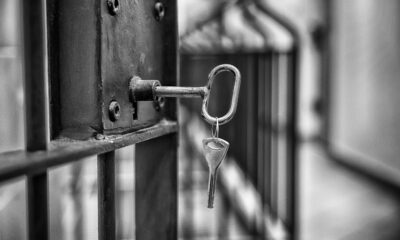Parental Rights vs. Drag Shows: Who Decides?

Florida’s law aiming to keep children away from drag shows was dealt a significant blow by a federal appeals court, highlighting ongoing tensions between parental rights advocates and free speech proponents.
At a Glance
- A federal appeals court upheld an injunction blocking Florida’s 2023 law prohibiting children from attending drag performances
- The 11th U.S. Circuit Court ruled 2-1 that the law violated First Amendment protections due to vague language
- A separate case in Naples saw a federal judge allow a drag show near a children’s playground despite state restrictions
- Florida’s Attorney General has vowed to continue fighting for the law’s enforcement
- The controversy pits parental rights advocates against free speech defenders
Court Rules Florida’s Anti-Drag Law “Substantially Overbroad”
The 11th U.S. Circuit Court of Appeals ruled 2-1 to uphold a preliminary injunction blocking Florida’s 2023 law aimed at preventing children from attending drag performances. The decision, favoring Hamburger Mary’s, an Orlando-area venue known for family-friendly drag events, found that Senate Bill 1438 violated constitutional free speech protections. The majority opinion criticized the legislation for being “substantially overbroad” and lacking the specificity required for speech regulations.
The ruling was split along apparent political lines. Judges Robin Rosenbaum and Nancy Abudu, appointed by Presidents Obama and Biden respectively, formed the majority. Judge Gerald Tjoflat, a Ford appointee, issued a dissenting opinion, suggesting the case should be sent to the Florida Supreme Court for interpretation rather than invalidating the law outright. The law, officially titled the “Protection of Children Act,” criminalizes knowingly admitting minors to adult live performances.
Vague Language Cited as Constitutional Concern
Judge Rosenbaum’s majority opinion emphasized constitutional requirements for clarity when government restricts speech. The court took particular issue with the undefined term “lewd conduct” in the legislation, suggesting it could lead to arbitrary enforcement and chill protected speech. The statute’s vagueness is further complicated by a sliding scale considering the age of minors, which the court found problematic for consistent enforcement.
“Requiring clarity in speech regulations shields us from the whims of government censors. And the need for clarity is especially strong when the government takes the legally potent step of labeling speech ‘obscene.’ An ‘I know it when I see it’ test would unconstitutionally empower those who would limit speech to arbitrarily enforce the law. But the First Amendment empowers speakers instead. Yet Florida’s Senate Bill 1438 (the law) takes an ‘I know it when I see it’ approach to regulating expression.”, said Judge Robin Rosenbaum.
Judge Tjoflat strongly disagreed with the majority’s approach. In his dissent, he argued that focusing on “lewd conduct” was misplaced and criticized the statewide scope of the injunction. “Instead, the majority sidesteps the very tools our system provides — tools designed to respect state authority, foster comity, and avoid unnecessary constitutional rulings,” Tjoflat wrote in his dissenting opinion.
Naples Controversy Adds Fuel to Debate
A related dispute in Naples, Florida has intensified the statewide controversy. Federal Judge John Steele allowed a drag show to take place near a children’s playground, despite the city’s attempt to restrict such events. Naples Pride, supported by the ACLU, sued the city after being told to move the drag show indoors and limit it to adults only. Judge Steele determined that the city’s restrictions likely violated free speech rights, ruling that drag performances are protected under the First Amendment.
“They are not actually talking about pride… we are talking about whether or not we are going to allow the sexual grooming of children in public parks.”, said John Strand.
The Naples situation sparked significant community backlash. Local parents expressed outrage at the court’s decision, with some accusing the event of being inappropriate for children. Erika Donalds, a local parent, told city leaders, “This cannot — absolutely cannot — happen in the city of Naples.” Liberty Counsel has intervened in the case, arguing that allowing the drag show near the playground violates Florida’s Protection of Children Act and providing evidence of what they describe as inappropriate behavior at past events.
Legal Battle Likely to Continue
The future of Florida’s drag show law remains uncertain. The state has multiple legal options, including seeking an en banc rehearing by the full 11th Circuit Court, which is known to lean conservative. The case could potentially reach the Supreme Court. Meanwhile, Florida’s Attorney General has publicly vowed to continue fighting for the law’s enforcement, indicating the state’s commitment to defending what supporters describe as child protection measures.
Liberty Counsel maintains that despite the current injunction, “The law is not erased or suspended.” This legal standoff highlights the ongoing tension between protecting children from what some view as inappropriate content and upholding constitutional free speech protections. With strong advocates on both sides, the dispute over drag performances near children appears far from resolved in Florida, potentially setting precedents for similar conflicts across the nation.
























